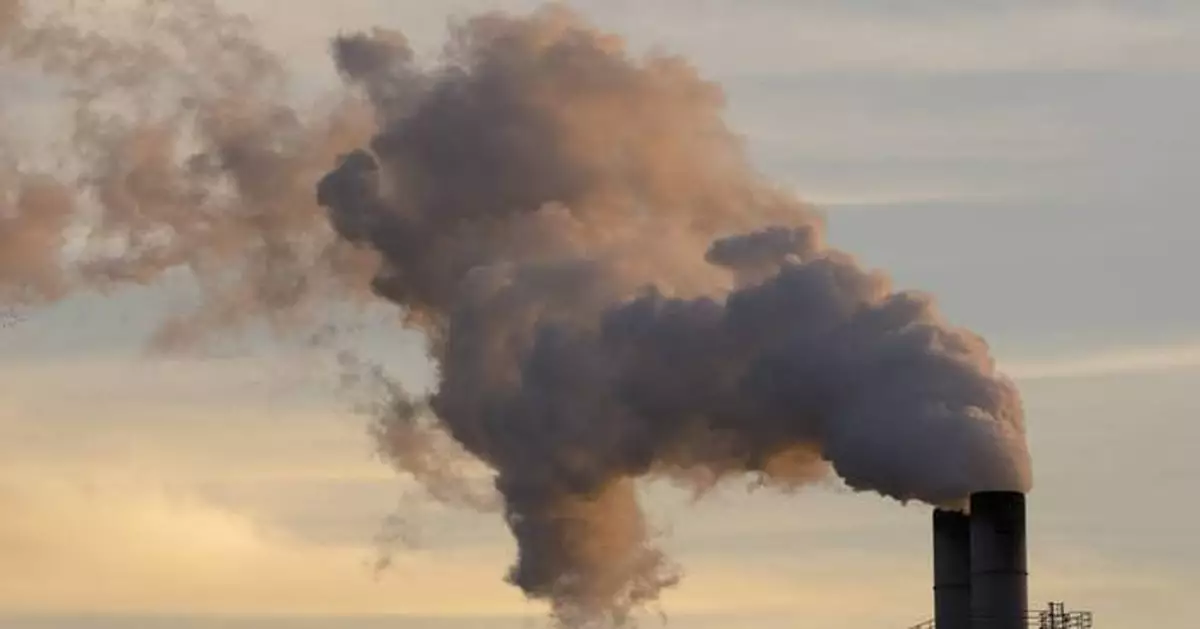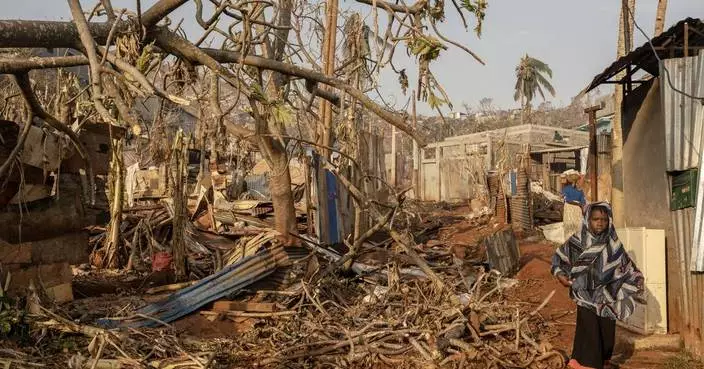SEATTLE (AP) — A groundbreaking law that forces companies in Washington state to reduce their carbon emissions while raising billions of dollars for climate programs could be repealed by voters this fall, less than two years after it took effect.
The Climate Commitment Act, one of the most progressive climate policies ever passed by a state Legislature, is under fire from conservatives, who say it has ramped up energy and gas costs in Washington, which has long had some of the highest gas prices in the nation. The law aims to slash emissions to almost half of 1990 levels by the year 2030.
Click to Gallery
A cost total is displayed on a screen at a Shell gas station, Wednesday, Oct. 9, 2024, in Seattle. (AP Photo/Lindsey Wasson)
Gas prices are displayed at a Shell gas fueling station, Wednesday, Oct. 9, 2024, in Seattle. (AP Photo/Lindsey Wasson)
Parking signs are seen at an Electrify America charging station, Wednesday, Oct. 9, 2024, in Seattle. (AP Photo/Lindsey Wasson)
Prices are displayed on a corner sign at a Shell gas station, Wednesday, Oct. 9, 2024, in Seattle. (AP Photo/Lindsey Wasson)
A driver fills up at a pump at a Shell gas station, Wednesday, Oct. 9, 2024, in Seattle. (AP Photo/Lindsey Wasson)
A driver fills up at a gasoline pump at a Shell gas station, Wednesday, Oct. 9, 2024, in Seattle. (AP Photo/Lindsey Wasson)
A driver fills up at a gasoline pump at a Shell gas station, Wednesday, Oct. 9, 2024, in Seattle. (AP Photo/Lindsey Wasson)
FILE - Steam is seen at the Longview WestRock mill, which makes cardboard materials including container board and corrugated containers, March 14, 2024, in Longview, Wash. (AP Photo/Jenny Kane, File)
FILE - Steam is seen at the Longview WestRock mill, which makes cardboard materials including container board and corrugated containers, March 14, 2024, in Longview, Wash. (AP Photo/Jenny Kane, File)
It requires businesses producing at least 25,000 metric tons (27,600 U.S. tons) of carbon dioxide, or the equivalent in other greenhouse gases including methane, to pay for the right to do so by buying “allowances.” One allowance equals 1 metric ton (1.1 U.S. tons) of greenhouse gas pollution and each year the number of allowances available for purchase drops, theoretically forcing companies to find ways to cut emissions.
Supporters of the policy say not only would a repeal not guarantee lower costs, but billions of dollars in state revenue for years to come are at stake. Many programs already are or will soon be funded by money from polluting companies, including projects on air quality, fish habitat, wildfire prevention and clean energy.
“The grand policy goal is the higher-level thing of fighting climate change, reducing carbon emission,” said Todd Donovan, a professor of political science at Western Washington University. “But you get down below 30,000 feet to the voters and it’s, ‘How does this effect my gas taxes?’”
The group behind the repeal effort, Let’s Go Washington, says the carbon pricing program has increased consumer gasoline costs by between 43 and 53 cents per gallon, citing the conservative think tank Washington Policy Center.
For months Let’s Go Washington, which is primarily bankrolled by hedge fund executive Brian Heywood, has held more than a dozen events at fuel stations to speak out against what it calls the “hidden gas tax.” Last month at a station in Vancouver, in southwestern Washington, the group lowered gas prices by $1 for two hours by subsidizing the difference to show what reduced prices would look like.
“It’s making everything more expensive, because everything you buy gets delivered to the store or to your door on a truck,” Let's Go Washington spokesperson Hallie Balch said in a video about the initiative last month.
The average price at the pump for regular gas has gone as high as $5.13 per gallon since the auctions started in February 2023, though it has since fallen and stood at $4.05 this month, according to GasBuddy. The state’s historic high of $5.54 came several months before the auctions began.
Supporters of keeping carbon pricing have showcased the many programs it finances and could disappear if the repeal succeeds, including ones to help Native American tribes respond to climate change.
“We know that the only guarantee of Initiative 2117 is that it would cut investments in combating pollution and air quality, in fish habitat, in preventing wildfires and in transportation,” said Mark Prentice, spokesperson for No on 2117, the group in favor of keeping the climate policy.
Without the program, the Office of Financial Management estimates, $758 million would be lost in state revenue in the next fiscal year and $3.1 billion over the following four years. During this year's legislative session, state lawmakers approved a budget through fiscal year 2025 with dozens of programs funded by carbon pricing revenue, with belated start dates and stipulations that would not take effect if that disappears.
Washington was the second state to launch this type of program, after California. It started out with aggressive emissions targets of 7% annual decreases, set to ease up from 2031 on. Repealing it would sink plans to link up Washington's carbon market with others and could be a blow to its efforts to help other states launch similar programs.
A diverse coalition is behind the movement to keep carbon pricing, including most of the federally recognized tribes in Washington, some of its biggest tech giants, national environmental groups TV personality and science advocate Bill Nye of “Bill Nye the Science Guy” and even at least one fossil fuel company. BP America, which was approved to participate in the auctions, contributed more than $2 million to the campaign, saying it supported the measure when it was passed and wants it to stay intact.
The fuel giant's support is likely due to the fact that keeping the policy in place would provide regulatory certainty that it can plan for, said Aseem Prakash, professor of political science and founding director of the University of Washington's Center for Environmental Politics.
Supporters of the law have raised more than $16 million, far surpassing the $7 million that Let’s Go Washington has brought in to spend on this and six other initiatives.
The repeal side submitted more than 400,000 signatures to get Initiative 2117 on the November ballot.
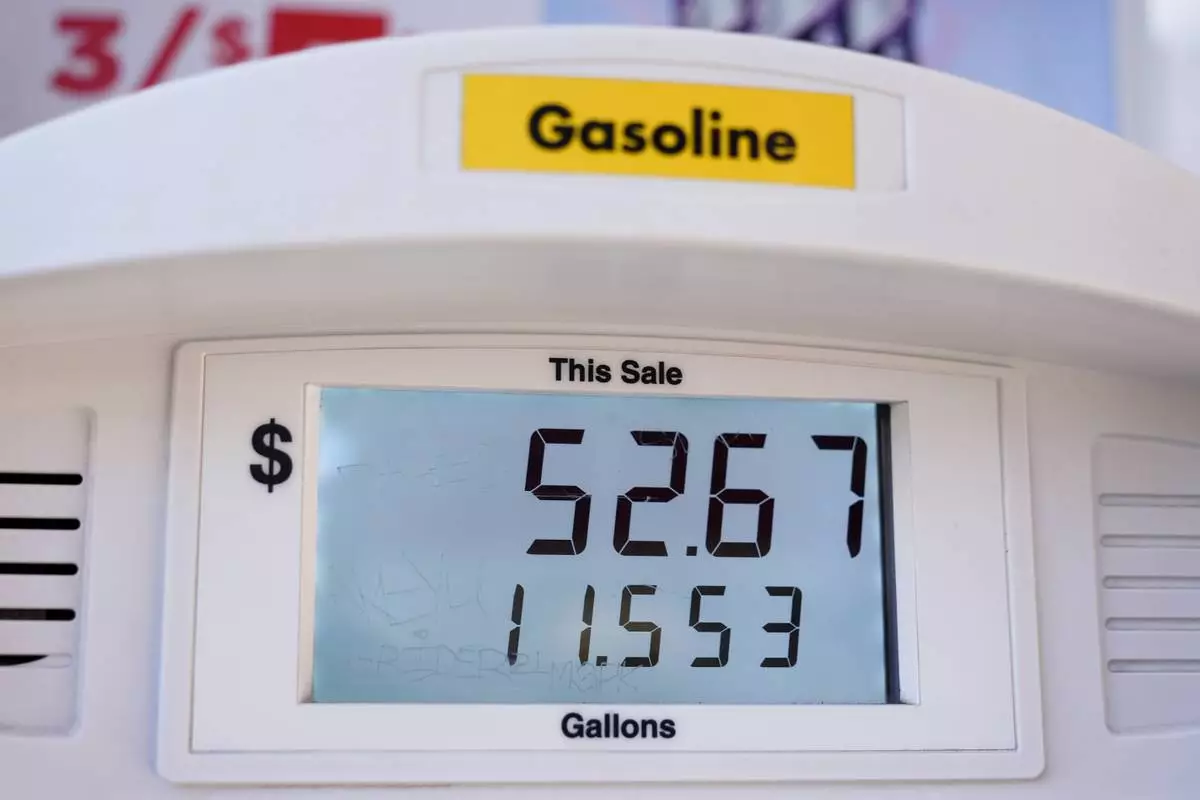
A cost total is displayed on a screen at a Shell gas station, Wednesday, Oct. 9, 2024, in Seattle. (AP Photo/Lindsey Wasson)

Gas prices are displayed at a Shell gas fueling station, Wednesday, Oct. 9, 2024, in Seattle. (AP Photo/Lindsey Wasson)
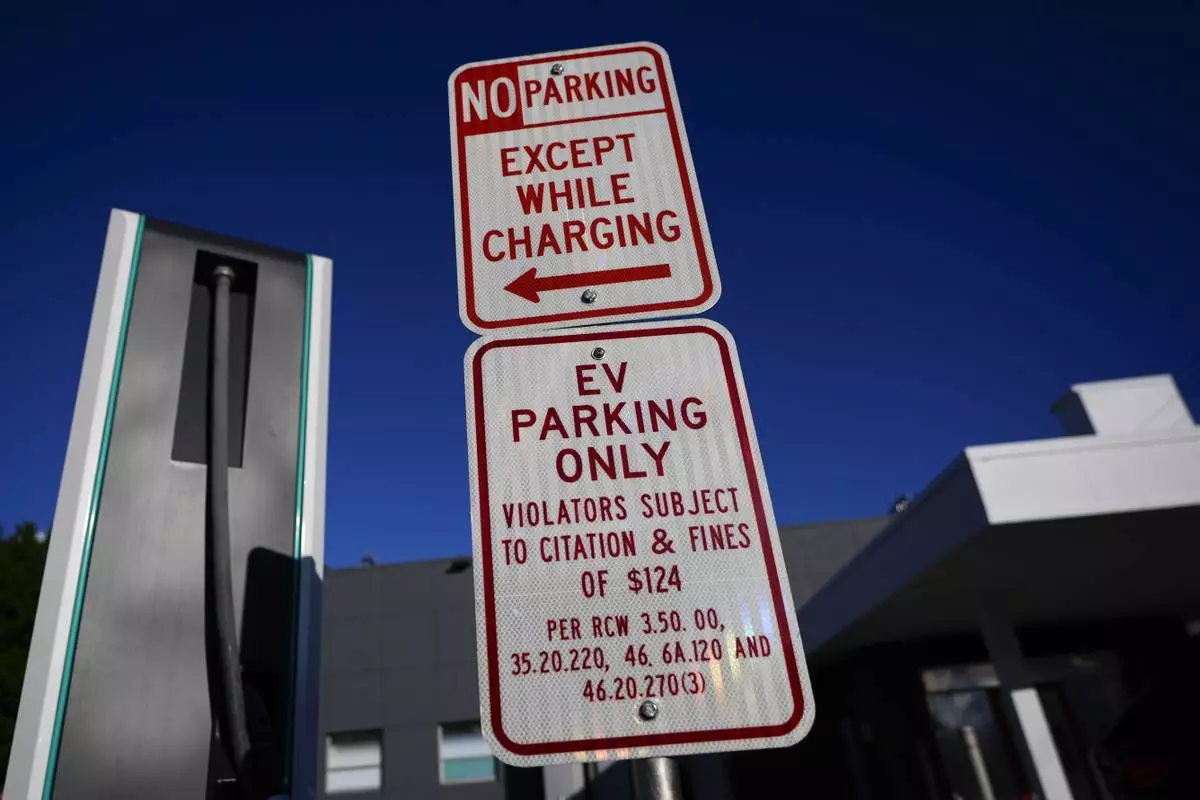
Parking signs are seen at an Electrify America charging station, Wednesday, Oct. 9, 2024, in Seattle. (AP Photo/Lindsey Wasson)
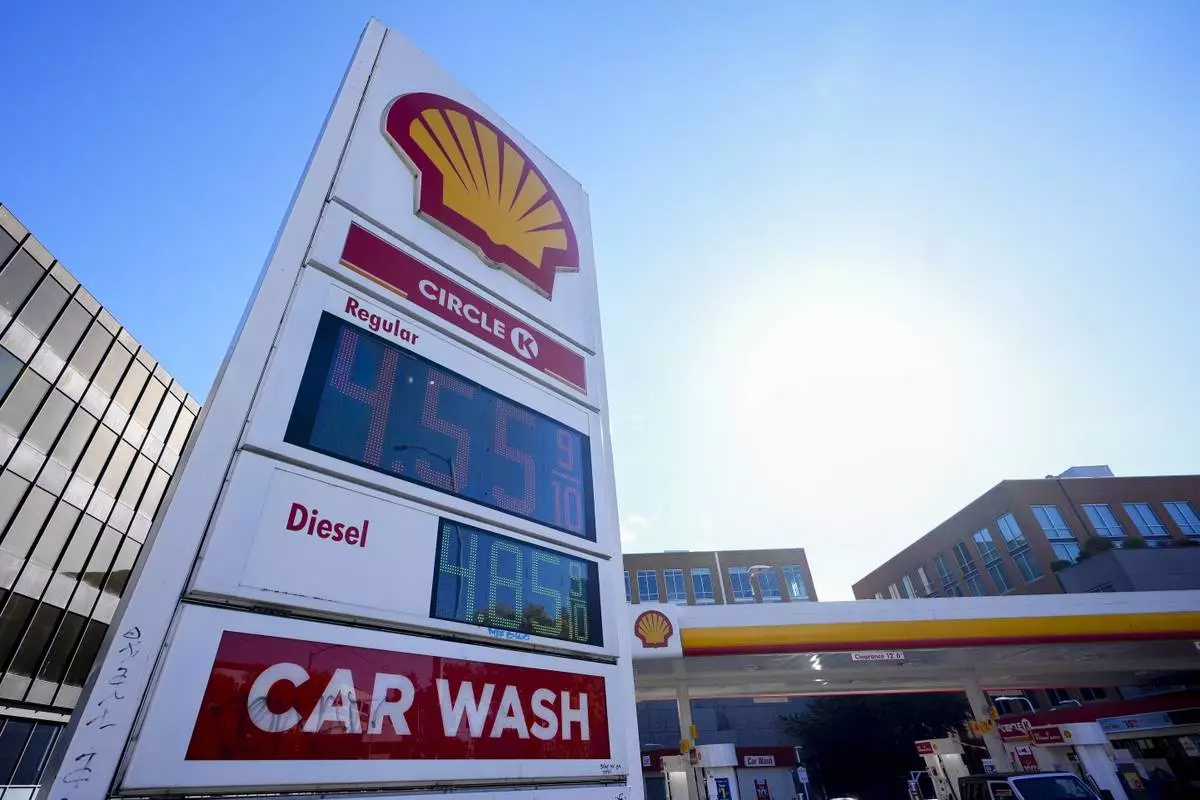
Prices are displayed on a corner sign at a Shell gas station, Wednesday, Oct. 9, 2024, in Seattle. (AP Photo/Lindsey Wasson)
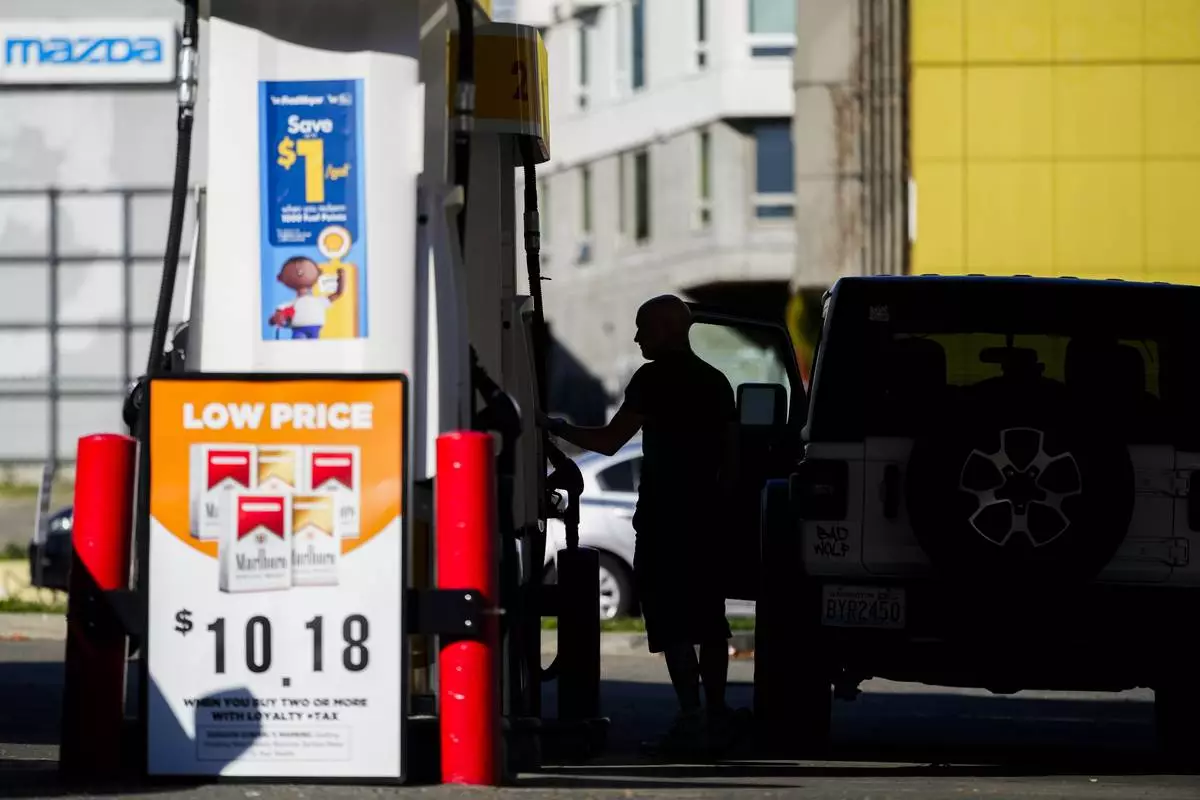
A driver fills up at a pump at a Shell gas station, Wednesday, Oct. 9, 2024, in Seattle. (AP Photo/Lindsey Wasson)

A driver fills up at a gasoline pump at a Shell gas station, Wednesday, Oct. 9, 2024, in Seattle. (AP Photo/Lindsey Wasson)
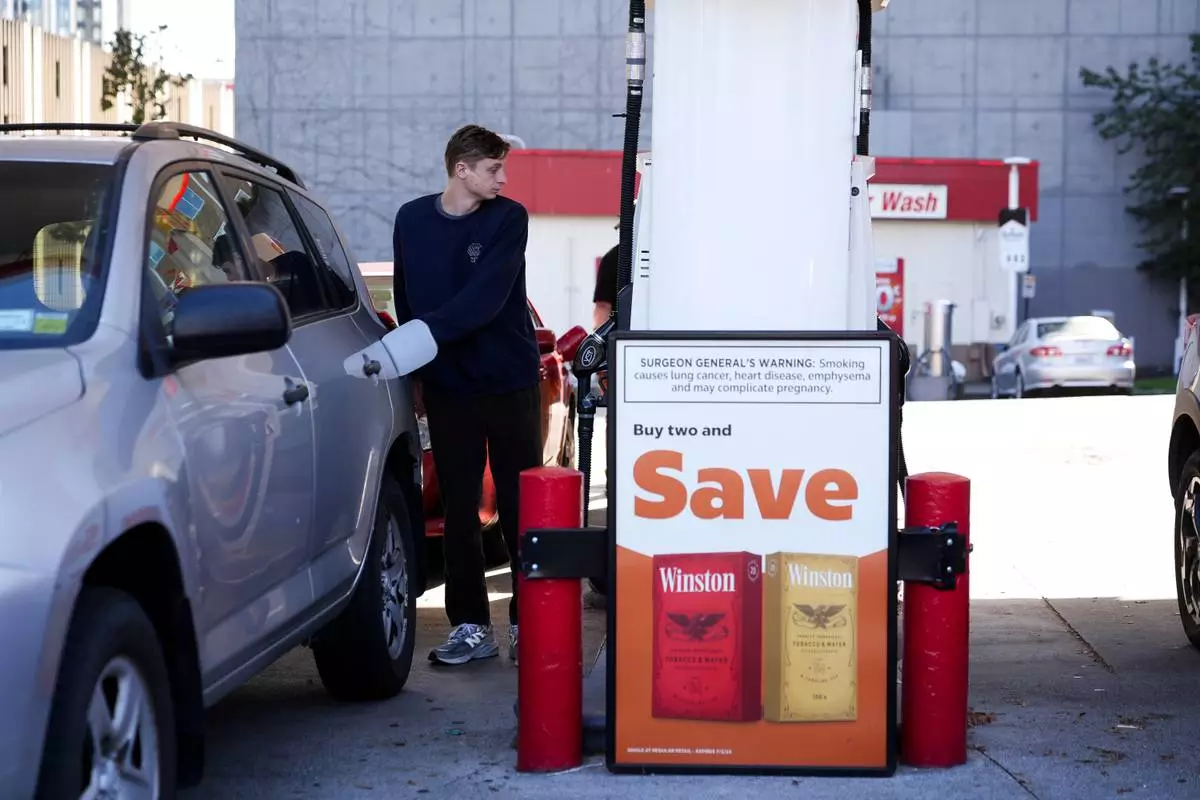
A driver fills up at a gasoline pump at a Shell gas station, Wednesday, Oct. 9, 2024, in Seattle. (AP Photo/Lindsey Wasson)
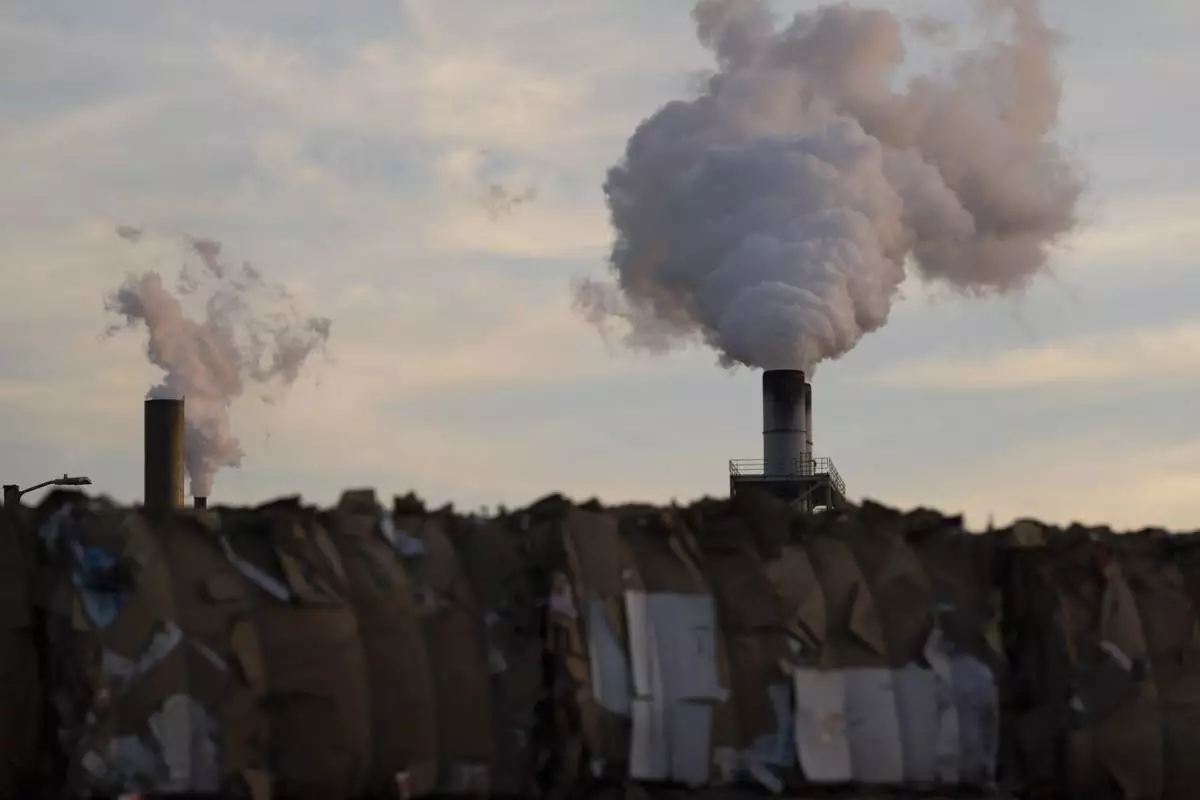
FILE - Steam is seen at the Longview WestRock mill, which makes cardboard materials including container board and corrugated containers, March 14, 2024, in Longview, Wash. (AP Photo/Jenny Kane, File)
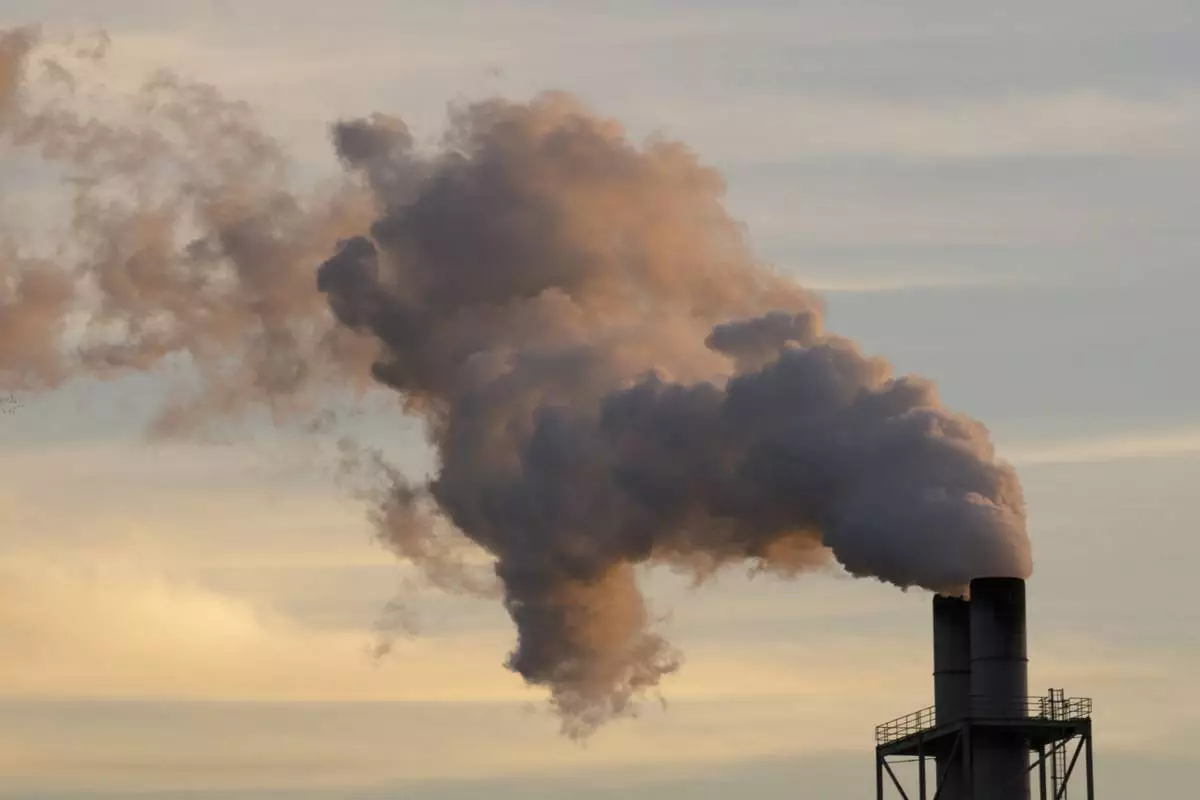
FILE - Steam is seen at the Longview WestRock mill, which makes cardboard materials including container board and corrugated containers, March 14, 2024, in Longview, Wash. (AP Photo/Jenny Kane, File)
TEL AVIV, Israel (AP) — A rocket fired from Yemen hit an area of Tel Aviv overnight, leaving 16 people slightly injured by shattered glass, the Israeli military said Saturday, days after Israeli airstrikes hit Houthi rebels who have been launching missiles in solidarity with Palestinians.
A further 14 people sustained minor injuries as they rushed to shelters when air raid sirens sounded before the projectile hit just before 4 a.m. Saturday, the military said.
The Houthi rebels issued a statement on the Telegram messaging app saying they had aimed a hypersonic ballistic missile at a military target, which they did not identify.
The attack comes less than two days after a series of Israeli airstrikes on Yemen’s Houthi rebel-held capital, Sanaa, and port city of Hodeida killed at least nine people. The Israeli strikes were in response to a Houthi attack in which a long-range missile hit an Israeli school building. The Houthis also claimed a drone strike targeting an unspecified military target in central Israel on Thursday.
The Israeli military says the Iran-backed Houthis have launched more than 200 missiles and drones during the Israel-Hamas war in Gaza. The Houthis have also been attacking shipping in the Red Sea and Gulf of Aden and say they won’t stop until there is a ceasefire in Gaza.
The Israeli strikes Thursday caused “considerable damage” to the Houthi-controlled Red Sea ports “that will lead to the immediate and significant reduction in port capacity,” U.N. spokesman Stephane Dujarric said. The port at Hodeida has been key for food shipments into Yemen in its decade-long civil war.
U.N. Secretary-General Antonio Guterres said both sides’ attacks risk further escalation in the region and undermine U.N. mediation efforts.
In the Gaza Strip on Saturday, mourners held the funerals of 19 people — 12 of them children — killed in Israeli strikes on Friday and overnight.
One of the strikes hit a residential building in the built-up Nuseirat refugee camp in central Gaza, killing at least seven Palestinians, including five children and one woman, and injuring 16 others, health officials said.
In Gaza City, another strike on a house overnight killed 12 people, including seven children and two women, according to Al-Ahli Hospital where the bodies were taken.
Mourners gathered at the hospital in Gaza City Saturday morning. Women comforted each other as they wept over the bodies before they were carried away. One man, stony-faced, cradled a tiny shroud-wrapped body in his arms as he carried it along the funeral procession.
In Al-Aqsa Hospital of Deir al Balah, white body bags containing those killed in Nuseirat were taken from the morgue and loaded onto the back of an open truck to be taken for burial.
Overall, Gaza's Health Ministry said Saturday that 21 people had been killed and 61 were wounded over the past 24 hours.
Israel faces heavy international criticism over the unprecedented levels of civilian casualties in Gaza and questions about whether it has done enough to prevent them.
Israel says it only strikes militants, and blames the Hamas militant group for civilian deaths because its fighters operate in residential areas.
More than 45,200 people have been killed and more than 107,500 wounded in the Gaza Strip since October 2023, when a Hamas attack in Israel killed about 1,200 people and triggered the devastating 14-month war in Gaza. Local health officials do not distinguish between civilians and combatants, but have said more than half of the fatalities are women and children.
The Israeli military organization dealing with humanitarian affairs for Gaza said Saturday it had led a “tactical coordinated operation” delivering thousands of food packages, flour and water to the Beit Hanoun area in the north of the Gaza Strip.
The organization, known by its acronym COGAT, said trucks from the U.N. World Food Program transported 2,000 food packages, 1,680 sacks of flour and thousands of liters of water to distribution centers in the area on Friday.
Aid groups have said previously that military operations and armed gangs have hindered their ability to distribute aid to civilians in need.
Gaza's Health Ministry issued an urgent appeal Saturday for medical and food supplies to be delivered to Kamal Adwan Hospital in Beit Lahia, near Beit Hanoun in northern Gaza, while the hospital director described dire conditions.
The ministry said in a statement that there was continuous gunfire and Israeli shelling near the hospital. “Shells have struck the third floor and the hospital’s entrances, creating a state of panic,” the ministry said.
Hospital Director Dr. Husam Abu Safiyeh said the facility was “facing severe shortages."
“Despite promises, we have not received the necessary supplies to maintain electricity, water, and oxygen systems," Abu Safiyeh said. "Our requests for essential medical supplies and staff have largely gone unmet.”
He said the World Health Organization had delivered 70 units of blood, but that the hospital requires at least 200 units to meet urgent needs. He said 72 wounded people were being treated at the hospital.
The shortages extend beyond medical necessities. “Food is very scarce, and we cannot provide meals for the wounded. We are urgently calling on anyone who can provide supplies to help us,” he said. “The staff is working around the clock, yet we cannot even provide meals for them.”
Shurafa reported from Deir al Balah, Gaza Strip. Associated Press writers Elena Becatoros in Majdal Shams, Golan Heights, contributed to this report.
Follow AP’s war coverage at https://apnews.com/hub/israel-hamas-war
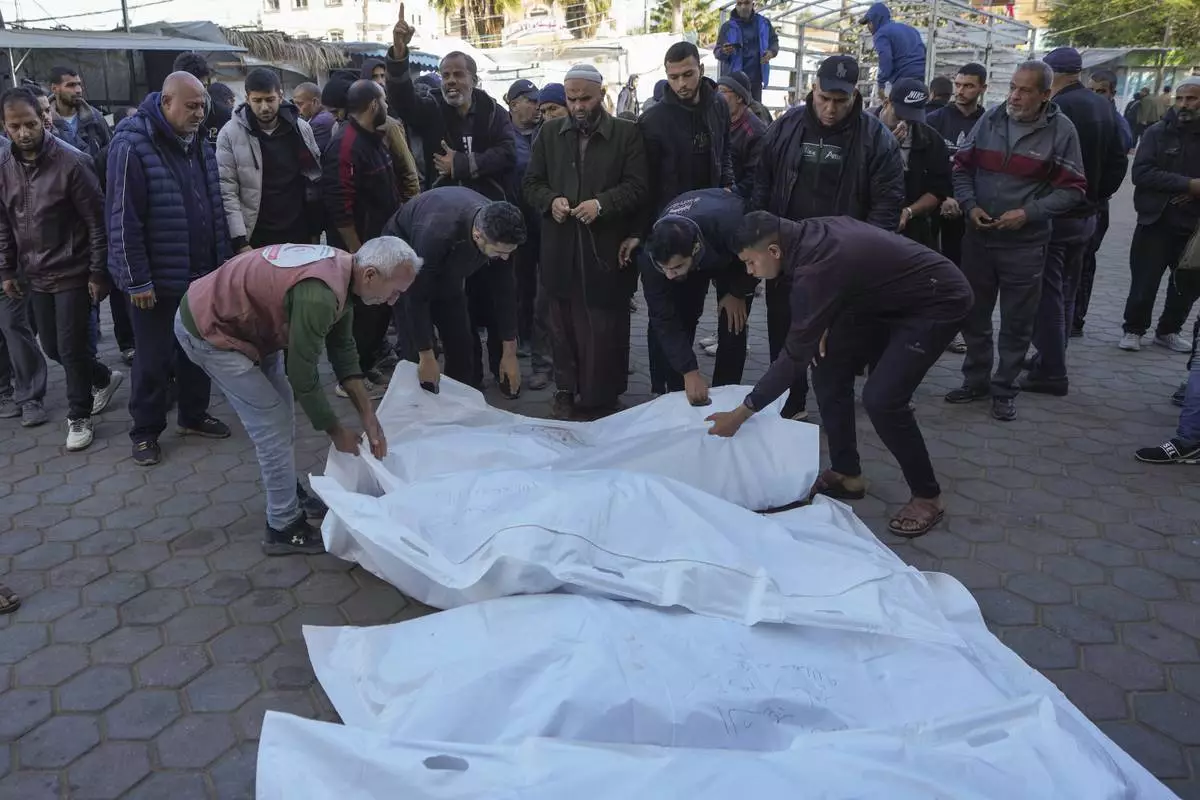
Bodies of victims of an Israeli airstrike at the Nuseirat refugee camp are prepared for the funeral prayer outside the Al-Aqsa Martyrs hospital in Deir al-Balah, Gaza Strip, Saturday, Dec. 21, 2024. (AP Photo/Abdel Kareem Hana)
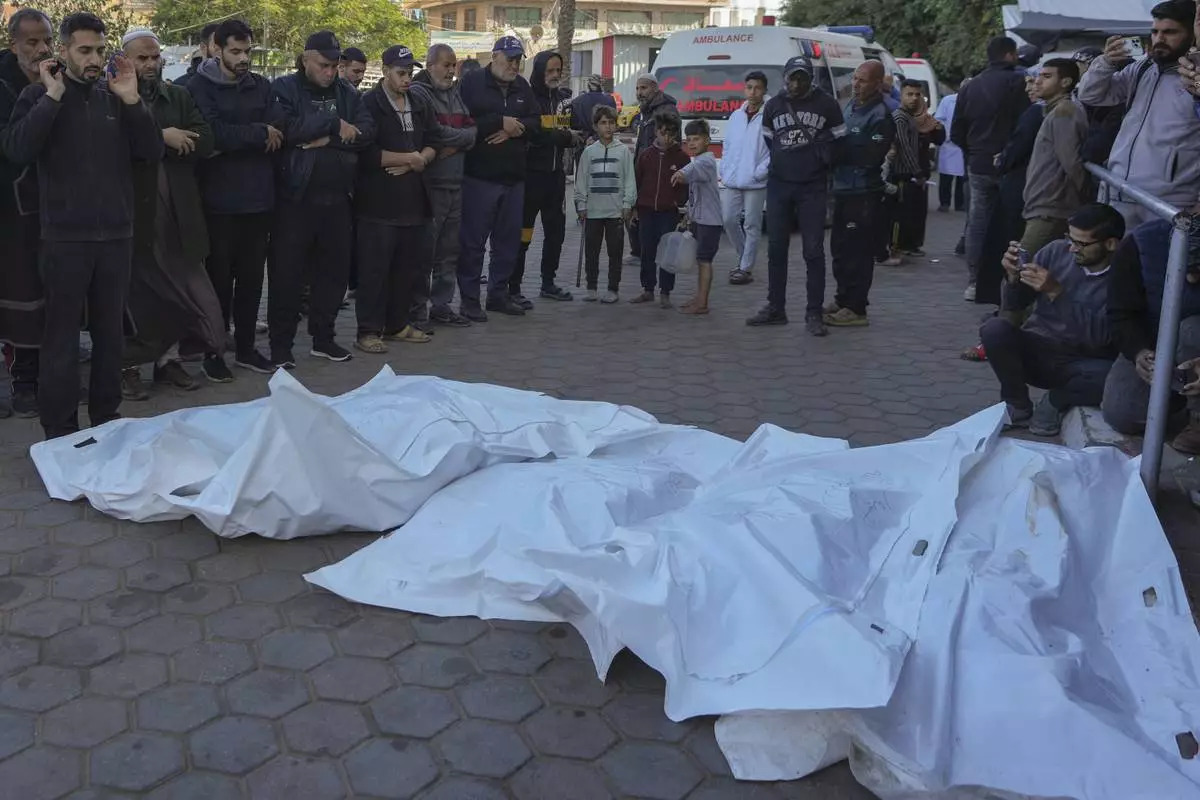
Men pray over the bodies of victims of an Israeli airstrike at the Nuseirat refugee camp during a funeral prayer outside the Al-Aqsa Martyrs hospital in Deir al-Balah, Gaza Strip, Saturday Dec. 21, 2024. (AP Photo/Abdel Kareem Hana)
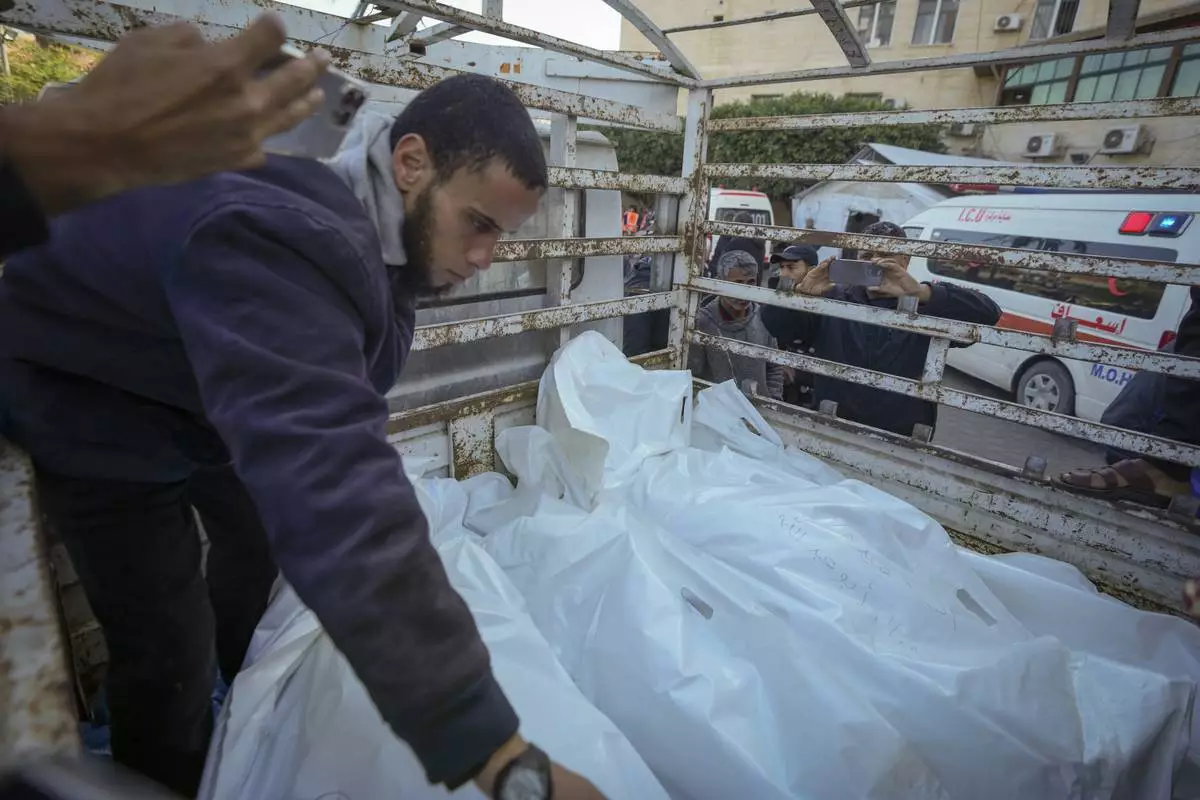
Bodies of victims of an Israeli airstrike at the Nuseirat arrive at the Al-Aqsa Martyrs hospital before their funeral in Deir al-Balah, Gaza Strip, Saturday, Dec. 21, 2024. (AP Photo/Abdel Kareem Hana)
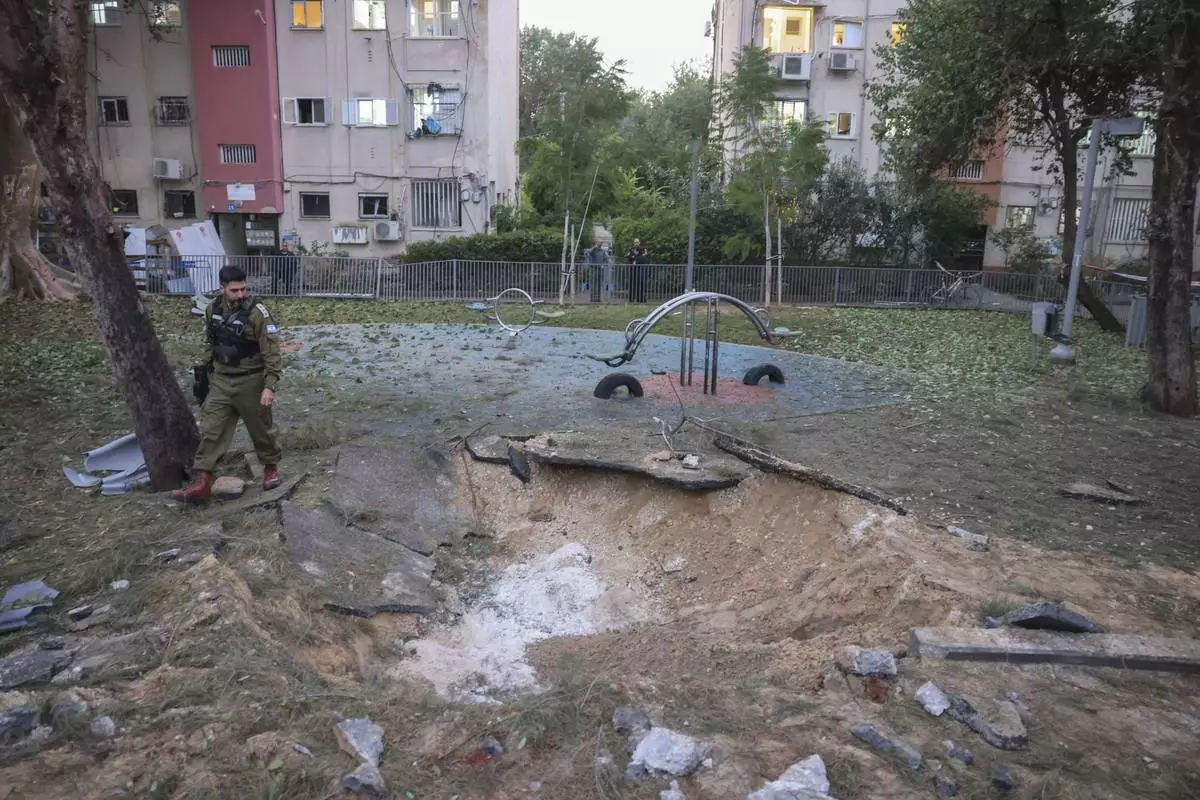
An Israeli soldier observes the site where the missile launched from Yemen landed Jaffa district, in Tel Aviv, Israel, Saturday, Dec. 21, 2024. (AP Photo/Tomer Appelbaum)











